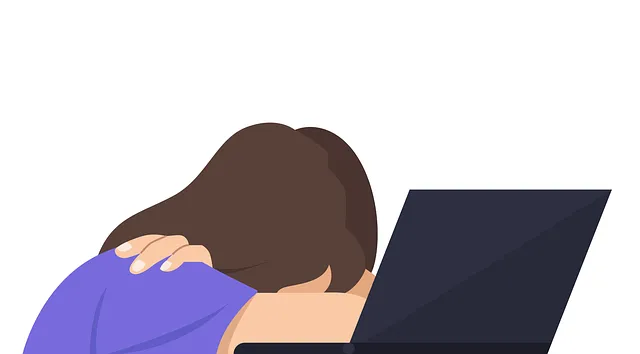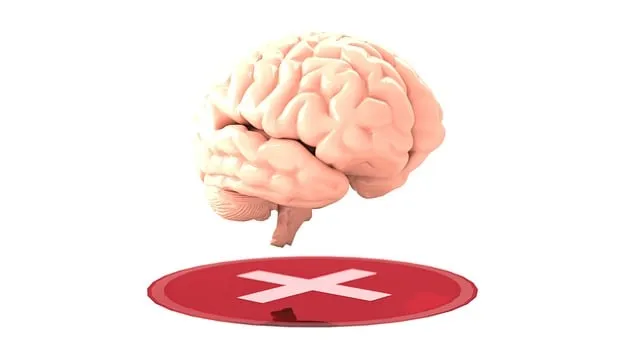Kaiser Permanente's mental health services in Lone Tree offer a comprehensive approach to managing chronic stress, addressing its impact on both mental and physical well-being. Through evidence-based techniques like CBT, mindfulness exercises, and self-care practices, they empower individuals to navigate stress effectively. Their tailored programs and Risk Assessment initiatives support mental health professionals while fostering emotional resilience and overall community wellness in Lone Tree.
Stress management is a vital skill in today’s fast-paced world, and teaching effective techniques can empower individuals to thrive. This article explores stress from its mind-body connection to the comprehensive services offered by Kaiser Permanente Mental Health. We delve into practical strategies utilized at Lone Tree, providing insights for those seeking to navigate life’s challenges with resilience. By understanding stress, you can begin your journey towards a calmer, healthier life, utilizing resources available through Kaiser Permanente and mastering techniques tailored to your needs.
- Understanding Stress: The Impact on Mind and Body
- Kaiser Permanente Mental Health Services: A Comprehensive Approach to Stress Management
- Practical Techniques for Effective Stress Teaching at Lone Tree
Understanding Stress: The Impact on Mind and Body

Stress is a natural response that every individual experiences at some point, but when it becomes chronic, it can have significant effects on both mental and physical health. The mind and body are intricately linked, and understanding this connection is crucial in managing stress effectively. Kaiser Permanente mental health services in Lone Tree recognize that ongoing stress can lead to various issues, including anxiety, depression, and even more severe conditions like post-traumatic stress disorder (PTSD). This is particularly relevant for individuals who have experienced traumatic events, as these experiences can disrupt emotional regulation and trigger long-lasting stress responses.
The impact of chronic stress on the body includes increased heart rate, elevated blood pressure, and heightened cortisol levels, which over time can contribute to cardiovascular problems, a weakened immune system, and other health complications. Additionally, mental illness stigma reduction efforts highlight the importance of recognizing that stress management is not just about feeling calm; it’s about fostering resilience and overall well-being. By understanding these dynamics, individuals can take proactive steps towards managing their stress levels through various techniques, such as therapy, mindfulness practices, and seeking support from services like Trauma Support Services, to promote emotional regulation and enhance their quality of life.
Kaiser Permanente Mental Health Services: A Comprehensive Approach to Stress Management

Kaiser Permanente Mental Health Services offers a comprehensive approach to stress management, focusing on holistic well-being. Their program incorporates various evidence-based techniques tailored to individual needs. Beyond traditional therapy, they emphasize self-care practices, mindfulness exercises, and effective communication strategies, as highlighted in their Mental Wellness Podcast Series Production. This multi-faceted approach ensures that clients not only address underlying stressors but also develop sustainable coping mechanisms.
The organization recognizes the unique challenges faced by mental health professionals, incorporating a Risk Assessment for Mental Health Professionals to prevent burnout and promote resilience. By combining innovative practices with expert guidance, Kaiser Permanente Lone Tree aims to empower individuals to navigate stress effectively, fostering mental wellness in their community.
Practical Techniques for Effective Stress Teaching at Lone Tree

At Lone Tree, teaching stress management techniques has become an integral part of holistic well-being initiatives, thanks to organizations like Kaiser Permanente that prioritize mental health services in their facilities. The approach is tailored to suit diverse individuals, focusing on practical strategies that can be easily integrated into daily routines. Through interactive workshops and one-on-one sessions, the team at Lone Tree imparts knowledge about various stress management techniques.
These include mindfulness practices, such as meditation and deep breathing exercises, which have been shown to significantly reduce stress levels and improve emotional regulation. Additionally, they encourage resilience building through cognitive behavioral therapy (CBT) techniques, enabling individuals to challenge negative thoughts and develop healthier coping mechanisms. The Mental Health Policy Analysis and Advocacy group at Lone Tree also emphasizes the importance of creating supportive environments, fostering open conversations about mental health, and promoting self-care practices as essential components of stress management.
In conclusion, stress management techniques play a pivotal role in enhancing mental and physical well-being. As highlighted by Kaiser Permanente Mental Health Services, a holistic approach can significantly improve an individual’s quality of life. At Lone Tree, practical teachings have proven effective in empowering individuals to navigate stress effectively. By integrating these strategies into daily routines, folks in the community can foster resilience, ensuring a healthier, more balanced lifestyle.






